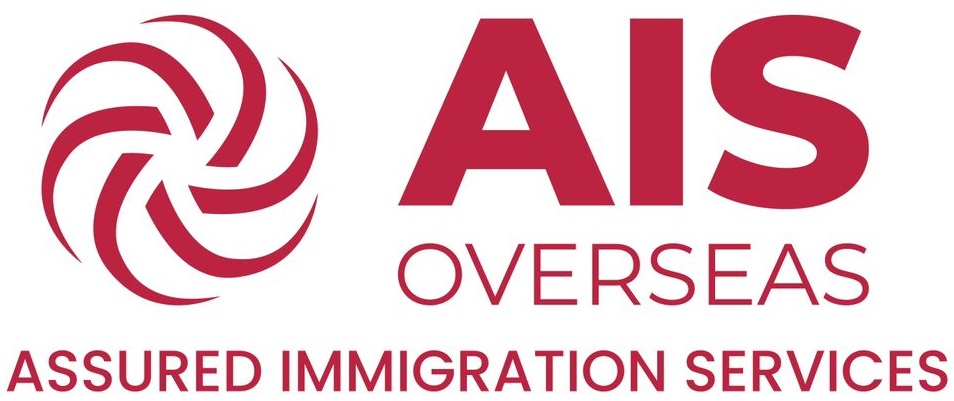
Migrate to Austria
Sign up for a free expert consultation
Austria PR Visa
If you are not a citizen of the European Economic Area (EEA) or of Switzerland and you plan to stay in Austria for a period longer than six months, you must obtain a residence permit. Austria provides a variety of residency permits. You will need a visa if your stay is less than six months, but you do not need a resident permit.
Before traveling to Austria, you must apply in person and in your home country for a residence permit. Permits to live there are granted for work, education, or research purposes. To cover your living expenses, you must have a steady source of income. Austria's top cities to live in are Salzburg, Innsbruck, and Vienna.
Residence permits to migrate to Austria
Below is a list of residence permits to migrate to Austria:
- Temporary residence permit, also known as a nufenthaltsbewilligung (for temporary stay in Austria)
- Betriebsentsandter for workers assigned to interim shifts
- Rotationsarbeitskraft for executives, managers, and company representatives
- Selbsttändiger for people who work by themselves
- Forscher for researchers in universities in Austria
- Künstler is a term for independent artists.
- Special situations unreliable employment for journalists and visiting lecturers
- Student for anyone enrolled in an Austrian college or university
- Schüler refers to Austrian schoolchildren in grades 1 through 12.
- Foreign nationals who want to reside in Austria for a duration longer than six months are eligible for the Niederlassungsbewilligung visa.
Eligibility
In order to apply for Austrian permanent residency, you need to fulfill the following requirements:
- You have to have been legally recognized in Austria for the previous five years.
- Either through employment or self-employment, you must be financially self-sufficient.
- For those five years, you have to have health insurance.
- Achieving a B1 level in German is a requirement of Module 2 of the Integration Agreement.
Application process
- Only fully completed applications can be submitted.
- They have to be submitted in person.
- Should the candidate be a minor, both parents must sign the application.
- Because all applications must be forwarded to Austria, processing will take at least one month.
Documents required
- A valid passport with at least 3 months validity from the date of return
- A completed application form with receipt for payment of consular fees
- Recent passport-size photographs
- A notarized copy of your birth certificate
- A certificate proving good conduct and absence of any criminal record
- Evidence of health, travel and accident insurance coverage
- Evidence of having enough funds
- Evidence of having arranged accommodation in Austria
How can AIS Overseas help you?
- Inform you of the paperwork needed to obtain the visa.
- Give you advice on how to demonstrate the necessary finances for the visa.
- Finish the application procedure.
- Examine the documents you need to apply for a visa.
- Assist you in getting ready for a visa interview if one is necessary
Frequently Asked Questions
The requirements to Work in Austria / Austria work visa:
- Statement Of the employer
- Proof of professional Qualification
- Research Activities
- Evidence of language skills
- Patent registration
- Proof of last year's Annual gross salary
- Proof that you studied in Australia(if you have)
- Employment Contract
Austria is a member of the Schengen Agreement, so the Austria work visa process is more straightforward for EU Citizens. There are different types of visas for work:
Red-White-Red card
This program is for highly skilled foreign employees assigned to work and residence permits in Austria for two years. It is exclusively granted to the following people:
- High qualified and skilled worker
- Shortage of occupation skilled worker
Other Key Workers
- Austrian Universities and Colleges of Higher Education
- Self-employed
- Start-up founders
- EU Blue Card
This visa is only for skilled workers. Similar to the Red-White-Red Card, it has no point-based system.
- Job Seeker Visa
This visa is for those who are still looking for a Job in Austria.
- Seasonal Workers
This visa is for seasonal or temporary workers referred to tourism and agriculture.
The process for obtaining a work visa as an Australian is similar to that of other nationals, although there are a few guidelines that need to be followed:
- Aged between 18 to 30 years old.
- Have an Australian passport valid for at least three months
- Have an education qualification for at least two years or higher education
- Having adequate funds, basically being financially independent
- Have health insurance
- Have sufficient funds to return to the country
Austria is considered the centre of technology, with each person working in one of the wealthiest and most stable nations in the EU. It's among the richest nations on the planet. The nation is renowned for having a good level of living and a high Human Development Index ranking. There are several job categories in Austria.
- Accountants
- Healthcare Professionals
- Engineering and Construction
- Tourism and Hospitality
- Finance and Banking
- Tradesmen
- Restaurant chefs
The Austrian government mandates that its employees get several benefits. They offer paid yearly leave, paid parental leave, worker's compensation insurance, and paid sick leave.
Employees and workers are the two categories of employment that exist today.
Employers are primarily referred to as those who work for a certain company, and workers are referred to as skilled manual labour. Between the two of them, there are certain differences.
The following is the basis for the distinction between employee and employer benefits:
- Sick pay
- Reasons for absences
- Remuneration dates
- Notice periods and dates
- Grounds for premature contract cancellation
All of these reasons must be followed by an employee.
Australia and Austria have a bilateral agreement that allows Australian nationals to enter Austria without a visa for a maximum of 90 days.
If a person intends to stay in Austria for more than six months, they must obtain a residence visa. Third country nationals are people who are neither citizens of Switzerland nor the European Economic Area (EEA).
You must apply for the Red-White-Red Card if you are a qualified foreign worker who wants to live and work in Austria.
A two-year residence and employment permit is granted with the Red-White-Red Card. A Red-White-Red Card holder is eligible for both employment with a specific employer (i.e., the employer listed in your application) and a fixed-term settlement in Austria.
The Red-White-Red Card, to put it simply, is a single card that allows qualified people of third countries and their families to work and permanently settle in Austria.
No, without a legitimate job offer, you are not eligible to apply for a Red-White-Red Card.
To qualify for the Red-White-Red Card, you have to –
- Reach the points necessary
- Fulfill the general requirements
- Got an employment offer from an Austrian employer
Only those who fulfil the aforementioned requirements are eligible to apply for the Red-White-Red Card.
You will need to apply for a new Red-White-Red Card if, within the first two years of your stay in Austria, your employer changes for any reason.
Yes, your family members will need to apply for the Red-White-Red Card plus.
Family members for the Red-White-Red Card plus mean –
- Spouses
- Registered partners (same gender)
- minor children under 18 who are not married. Adopted children and stepchildren included.
If they meet the conditions, family members of people with permanent status are also eligible. In this case, a husband or civil partner and any children under the age of eighteen are considered "family." (Including adopted and stepchildren as well). Thankfully, your family meets the requirements because they had to dwell in Austria with you for five years before to applying for permanent residence.
You are allowed to remain and work in Austria for a period of five years with this permit, which is handled by provincial government offices. It is renewable and, if you meet certain requirements, permits you to live and work in other EU countries.


